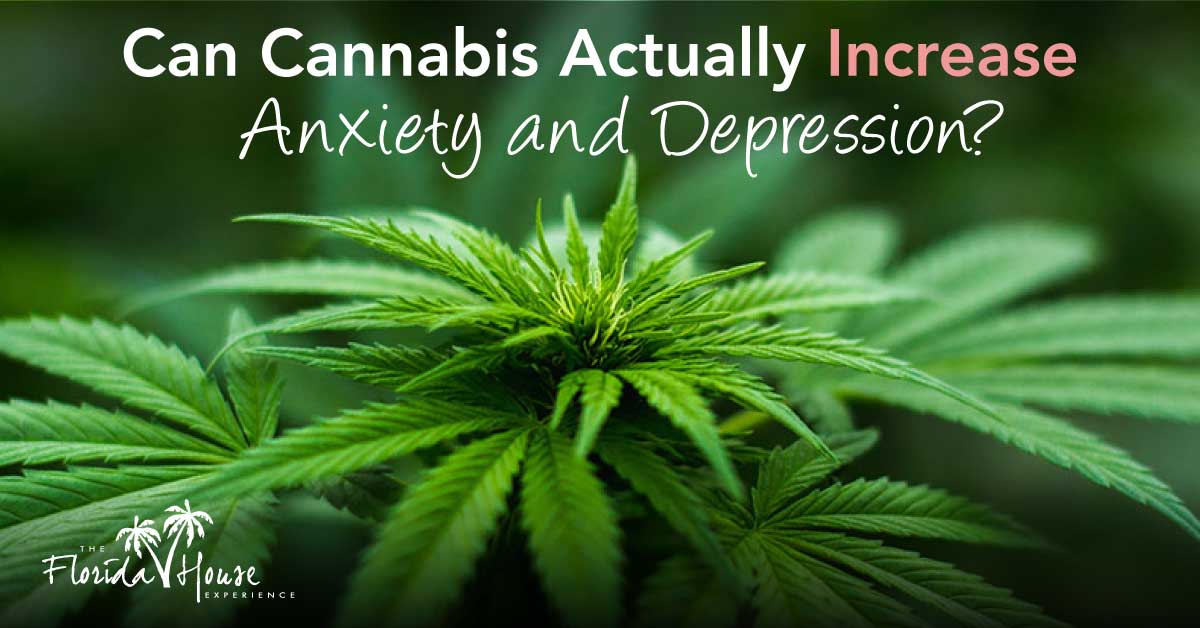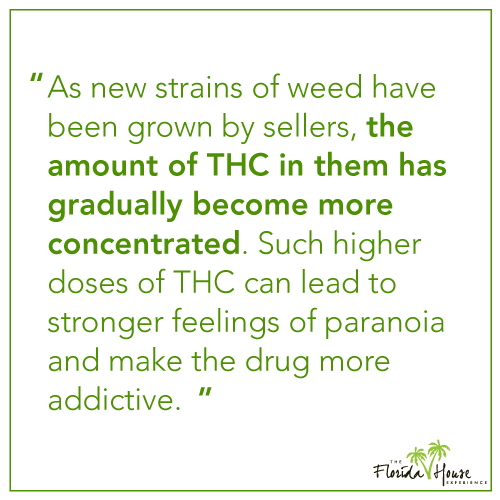
With the growing legal support and decriminalization of marijuana in the United States, it would seem there is a consensus that the there are benefits of use and exaggerations of medical concerns. However, there is a looming debate over how cannabis impacts feelings of anxiety and depression, in addition to the potentially damaging effects it may have on post-traumatic stress disorder. There is not nearly enough research behind the drug to have any conclusive findings but regardless, individuals would do well to exercise care when using marijuana as everyone experiences it differently.
Public Perception of Cannabis
Public opinion towards cannabis used synonymously with weed, pot, and marijuana; has shifted dramatically over the years. In 2015, 53% of Americans favored the legalization of the drug while 44% remain opposed. Comparatively, only 32% supported legalization with a 60% opposition rate in 2006. A huge factor for this change is the attitude of millennials, with their overwhelmingly positive view of cannabis, coming of voting age and making their voices heard.
Numerous reasons are cited for this newfound appreciation of weed in the United States. Many will say pot is not as harmful as alcohol, can treat illnesses, and that it is not nearly as addictive as other drugs. In fact, some argue that marijuana is not a drug since it is legal in some states and other parts of the globe. Marijuana culture is so deeply entrenched in current pop culture, via its presence in television, films, music, comedy, etc.; you would swear it was viewed with a positive lens across the board by the masses and medical professionals alike. However, the backlash of popularity after years of condemnation still deserves some skepticism, with some pointing to weed’s ability to cause anxiety and depression.
Cannabis addiction is a very real phenomenon. By no means is it nearly as prevalent as opioid abuse in this country, or with as dire consequences but it still exists. Thus, the drug is not as innocent as it is portrayed. There are individuals that become addicted to the drug and are unable to function in their daily lives. However, these cases are a rarity and frequently only involve teenagers that have no other experience with substances and are easily influenced. Due to this, cannabis is still used to treat drug addiction despite being viewed itself as an addictive substance.
Anxiety and Depression with Cannabis
The great irony about marijuana is how it impacts anxiety and depression. As many people praise cannabis for its calming effects, there are those who swear it causes panic attacks and depressed moods. The unfortunate thing is that there is not nearly enough data to support without objection whether or not it is good for anxiety and depression or causes both. There have been links drawn between weed, depression, anxiety, and suicidal thoughts among teens. Yet the findings of these studies remain mixed and are ultimately insubstantial. It should be noted that the reason research is limited is due to the federal restrictions on the drug. Wide-scale studies have been difficult to conduct with legality in question.
While there have not been any incidents of death resulting solely from marijuana use, consuming too much of the drug has been shown to produce a number of side effects. Strains of the drug with high levels of THC can induce anxiety, paranoia, and in the rare event, extreme psychotic reactions. Such reactions involve hallucinations and delusions that can land a user in the emergency room. However, emergency responders have found that most teens over consuming edibles fall victim to psychotic reactions. This is because they do not know how long it takes the high of edibles to kick in and so ingest far too much. It has also been shown that some adults who try to quit marijuana following years of repeated use experience both anxiety and depression. They may also feel other withdrawal effects including irritability, insomnia, and trouble eating. That being said, these symptoms minor in nature, rarely last longer than a few weeks and are far less painful than the withdrawal symptoms of opiates or alcohol.
There have only been a couple of well-regarded studies concerning the relationship between cannabis, anxiety, and depression. One from the Journal of Affective Disorders had participants smoke marijuana in their homes. Then they would rate their experiences with anxiety and depression using a phone app specifically designed to help them record how different amounts impacted their symptoms. Researchers found that low cannabidiol (CBD) and high tetrahydrocannabinol (THC) was the best at lowering stress levels. Meanwhile, the reverse was shown to be most effective at alleviating short-term depression. Both treatments helped participants control their anxiety with the combinations overall having a greater impact on the female test subjects. However, the medical weed did cause more significant signs of long-term depression. It would seem then that using marijuana to treat mental health is negated over time and therefore useless. This study is still a critical step forward though in understanding the drug.
Cannabis and Post Traumatic Stress Disorder (PTSD)

In the past couple of years, as new strains of weed have been grown by sellers, the amount of THC in them has gradually become more concentrated. Such higher doses of THC can lead to stronger feelings of paranoia and make the drug more addictive. Those who have PTSD are more likely to become addicted to a drug like weed since it depresses the central nervous system and lessens anxiety over a brief period. Also, having an existing pot addiction can make a person more susceptible to developing PTSD following a traumatic experience. This is due to the fact that such users have deprived their brain of the ability to maintain neurotransmitter balance without the aid of substances, leading to certain neurotransmitter deficiencies.
The United States Department of Veteran Affairs conducted a study using data from 1991 to 2011 concerning former military veterans who concurrently used marijuana while also being treated for PTSD. The research deduced that weed addiction, over an extended set of time, increased the severity of PTSD. However, anecdotal stories directly from some veterans contradicted those finds as they reported that marijuana had dulled their feelings of anxiety and depression.
Getting Treatment for Anxiety and Depression
If you or someone you know is dealing with anxiety or depression from marijuana use or is interested to learn about how weed can help with mental health, please contact us. Florida House provides a wide array of information regarding the drug and its uses both recreationally and for medical purposes. Anxiety and depression are issues to be taken seriously so do not hesitate to make an inquiry. Keep in mind that how pot is portrayed in popular culture or spoken about by people you know is not indicative of what your experience could be with the drug. Please speak with a member of our team of highly trained individuals at (833) 596-3502 for further assistance.







